
Plenty of welcome signs of approaching spring all around now – about time too! But with those tiny new shoots come a wealth of gardening jobs like sowing veg, cutting down autumn raspberry canes, and prepping your pot collection…
Veg shortages?
Whoa! Have you seen the headlines about salad and veg shortages for the next few months at least? Prices are bound to go up in response, and in combination with the cost-of-living increase, it’s all rather worrying. I know lots and lots of our readers already grow their own vegetables, but for those that don’t, this seems to be a VERY GOOD time to start!
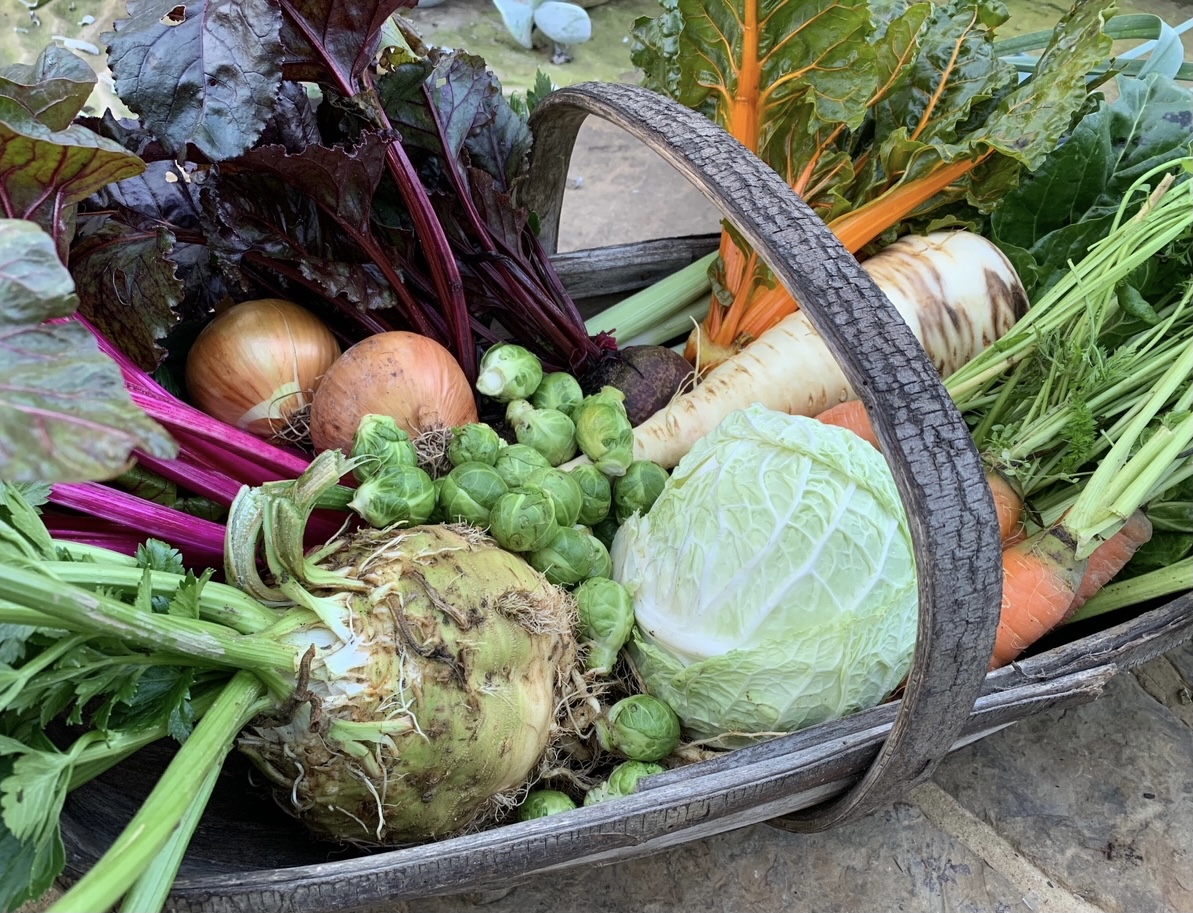
No garden? No problem at all! There are lots of nutritious edible crops that you can grow just on a windowsill indoors, and a huge number if you are lucky enough to have a window-box or balcony. Buy some seeds, containers with drainage holes, and seed compost, and just get going.
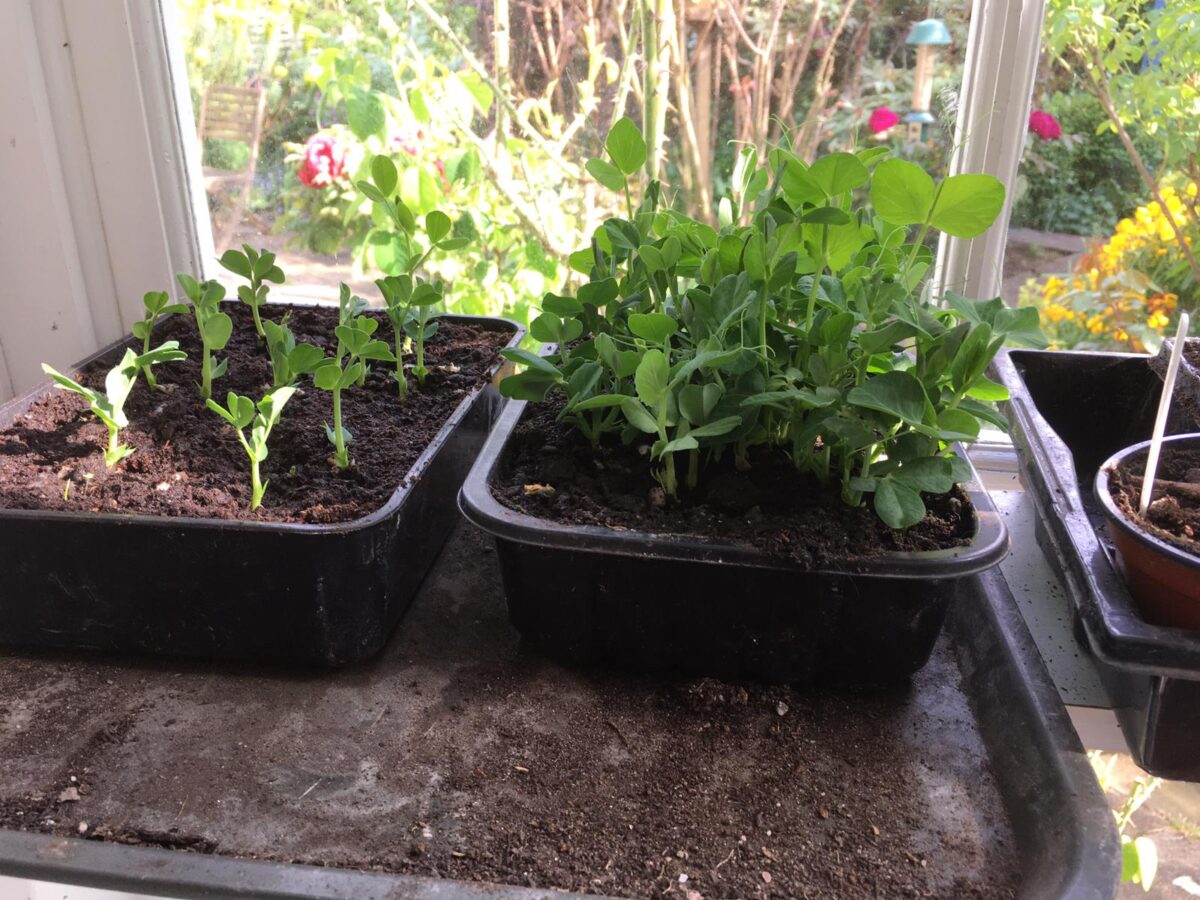
Pea-shoots, mustard and cress, herbs of all sorts (basil, parsley, mint…), edible flowers like calendula or chives are all fine on a sunny windowsill. So are lots of salad leaves, including loose-leaf lettuces like ‘Salad Bowl’ (the ‘hearting-up’ types tend to grow slowly and get a bit too big for a windowsill, though ‘Little Gem’ would be a good choice), and for lettuces, the windowsill doesn’t even need to be that sunny – a few hours’ light a day is fine.
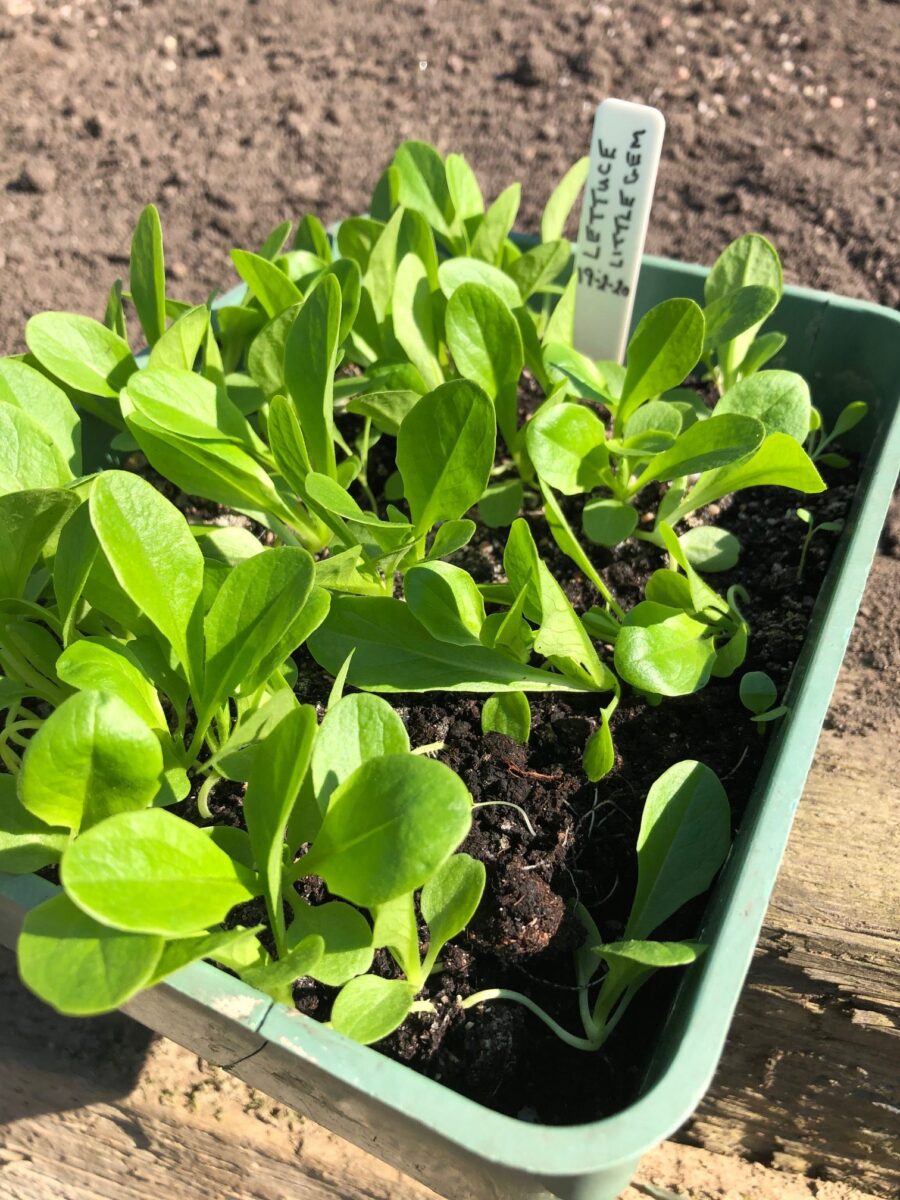
Harvest them small to get several pickings off each crop, and sowing a few each week will keep you in veg all summer. Even tomatoes can stay on a windowsill the whole time, but it would be wise to choose the more compact growers like ‘Tiny Tim’ to avoid having to fight through the undergrowth come mid-July!
In an outdoor pot or window-box, the choice is even wider. Kale, baby beetroot, radishes, carrots…….
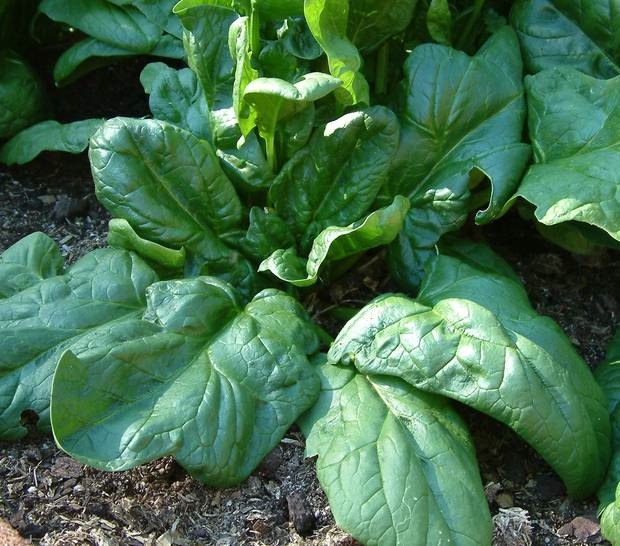
And what about getting the children and grandchildren involved, or teenagers living away from home, or retired mums and dads……..?
For info on growing individual crops, check out the handy and friendly little book we brought out on veg-growing during the first Covid crisis, trying to de-mystify the whole process. We’ve got a FAB offer on it this week – the link is at the bottom.
Let’s do it: beat the shortages and the price hikes, and enjoy some super-fresh produce into the bargain!
Forcing for fabulousness
How about cheating just a teensy bit, and persuading some plants to flower when they would expect to be still asleep? If you think about it, we do try and cheat them a little every time we move a pot closer to the warmer house-wall in winter, or tuck fleece around them on a frosty night. And creators of show gardens for Chelsea and the like, are usually in a whirligig of giving warm and cold treatments to the plants they want to use, to ensure perfection during the big week.
At the moment, I’m thinking more about bringing bulbs and branches or twigs indoors to encourage them into heartening early bloom, before their outdoor counterparts have got out of bed.
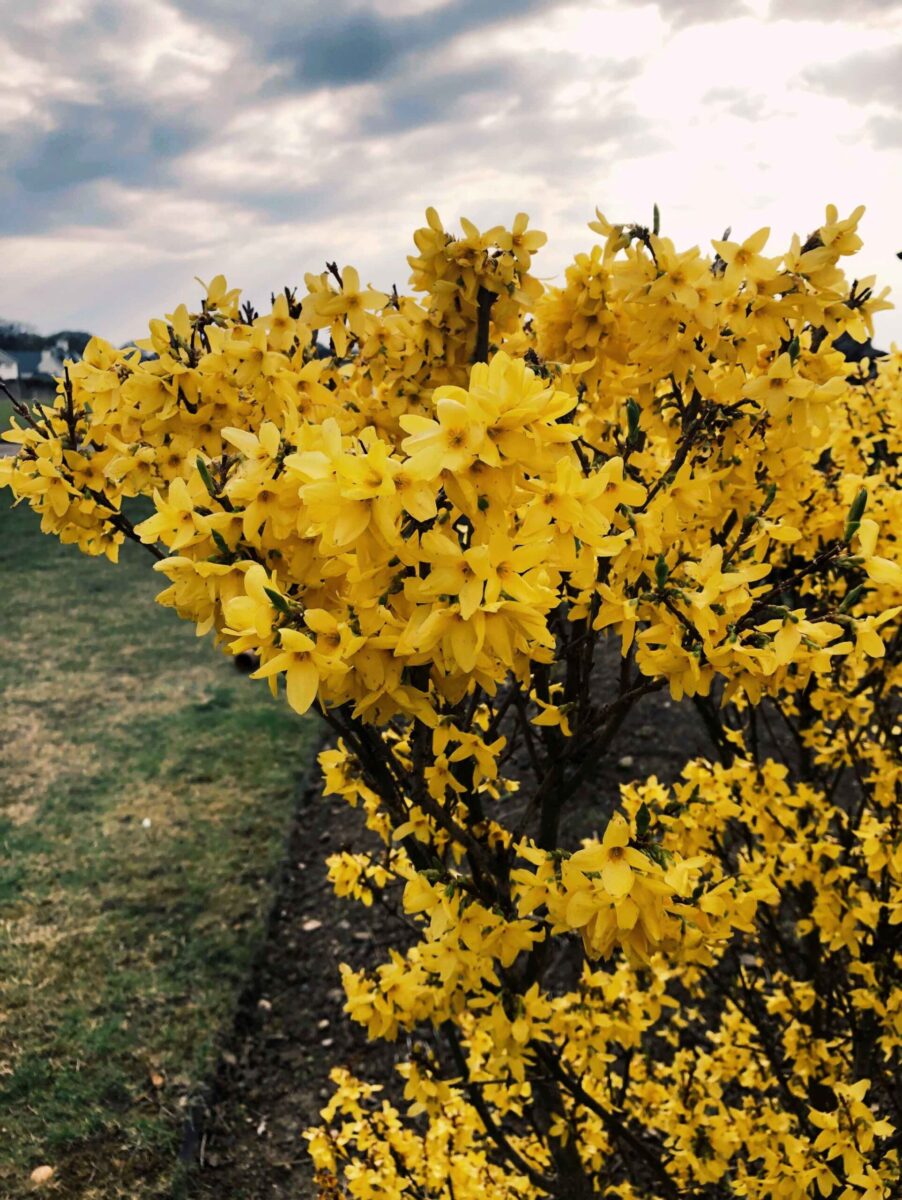
You don’t have to go full-on Victorian Head Gardener about this – I suggest you forget about creating a hot-bed for producing melons and pineapples in February, or hot greenhouses for strawberries in March! Madness! But over the years, I have derived huge enjoyment from bringing certain plants into the house for a short while in February and March to enjoy their flowers, early and close-up.
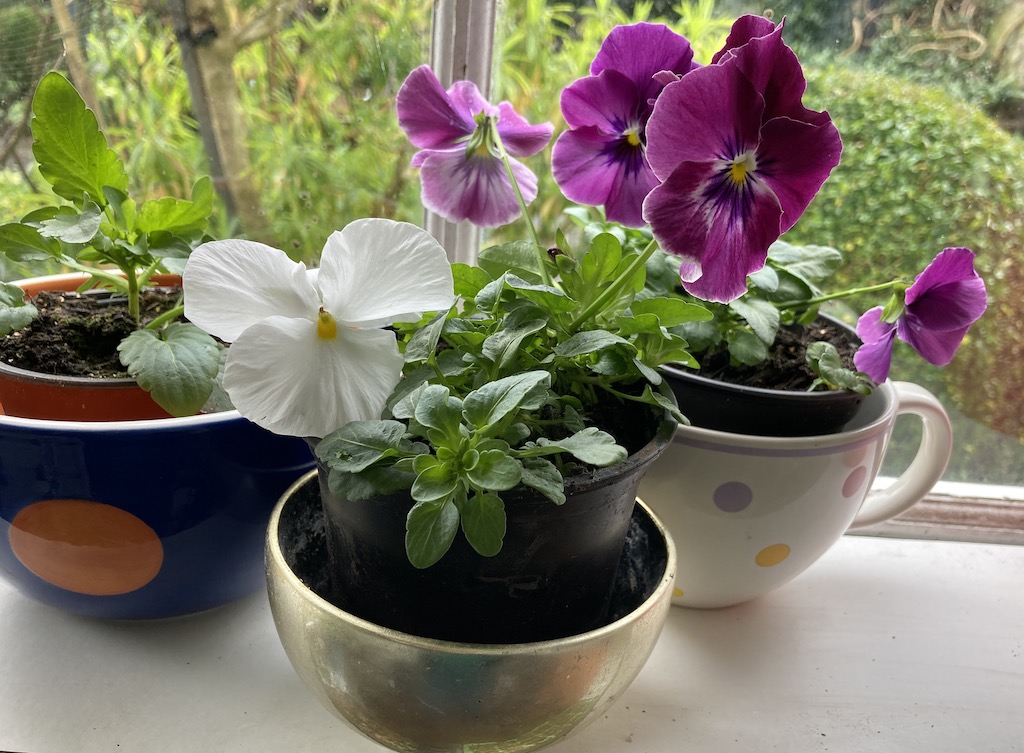
There are lots of plants you can try – pansies are lovely, potted up and brought under glass now, for instance. We are used to enjoying forced hyacinths and narcissi, but what about trying lily-of-the-valley, or violets? Crocuses work well, as do lots of small spring bulbs like grape hyacinths (Muscari), Scilla or dwarf irises. Just have a look at the lovely display in the greenhouse at Wisley in our feature pic this week. I like to bring shortish branches (12”, 30 cm) of Forsythia and Cornus mas into the house once their buds have formed, and this can work beautifully with cherry blossom and Japanese quince (Chaemomeles) too. Or what about pussy willows which will develop into delightful catkins? Or the sticky buds of horse chestnuts? I wonder if you have other suggestions………..
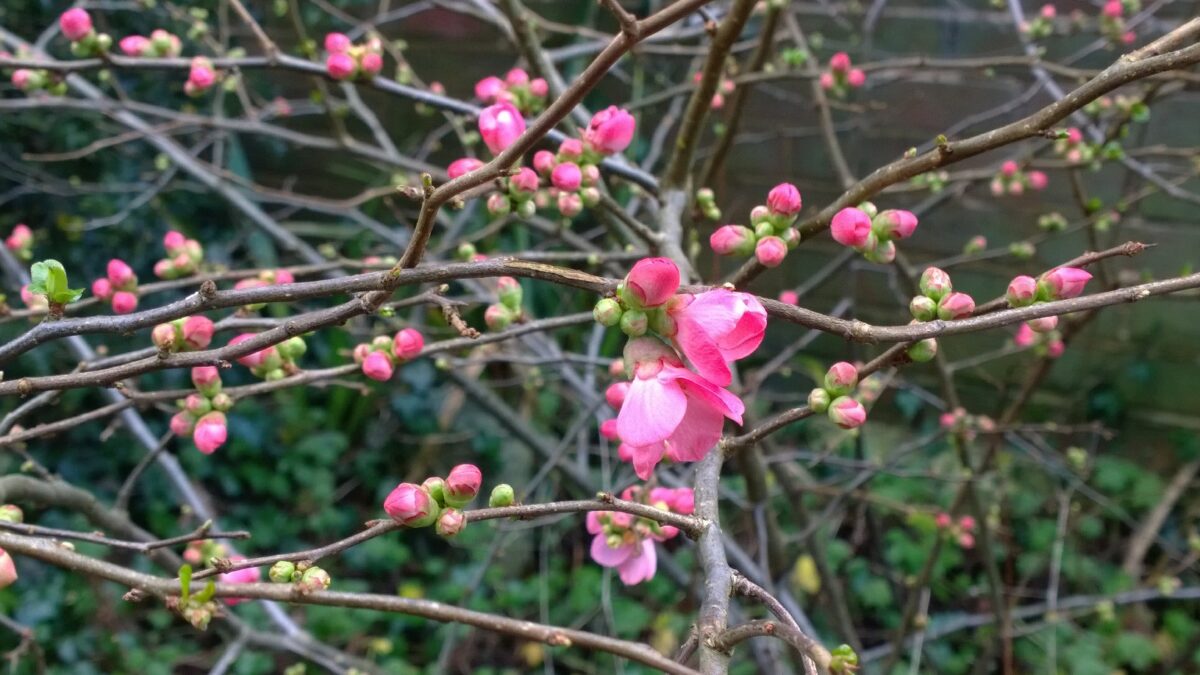
Just give the branches a long, cool drink, then make a deep split in the bottom (under water if possible so the air doesn’t get in) to help them take up water before you arrange them indoors. Change the water regularly, and adding half a teaspoonful of antiseptic mouthwash each time will prevent bacteria forming. If you keep a few twigs back in a cool bucket, you can even use them later to stagger your indoor display.
Do try it! It really is a fun way to bring a little touch of magic into your home on the dark, gloomy days we are bound to get between now and Easter.
Pots and pots of pots
Soooo, here we are at the beginning of another exciting growing season. But have you got all your pots and containers ready for the arrival of seeds, seedlings, plug plants etc, etc.?
Like many of you, I refuse to buy any new plastic containers, seed-modules etc. and endlessly re-use my old ones. I love using my paper-pot maker for seedlings to be potted into, though I tend to use the newspaper doubled these days, which makes the pots sturdier. Loo-roll innards and kitchen packaging of all kinds are incredibly useful as long as holes are punched in the bottom for drainage.
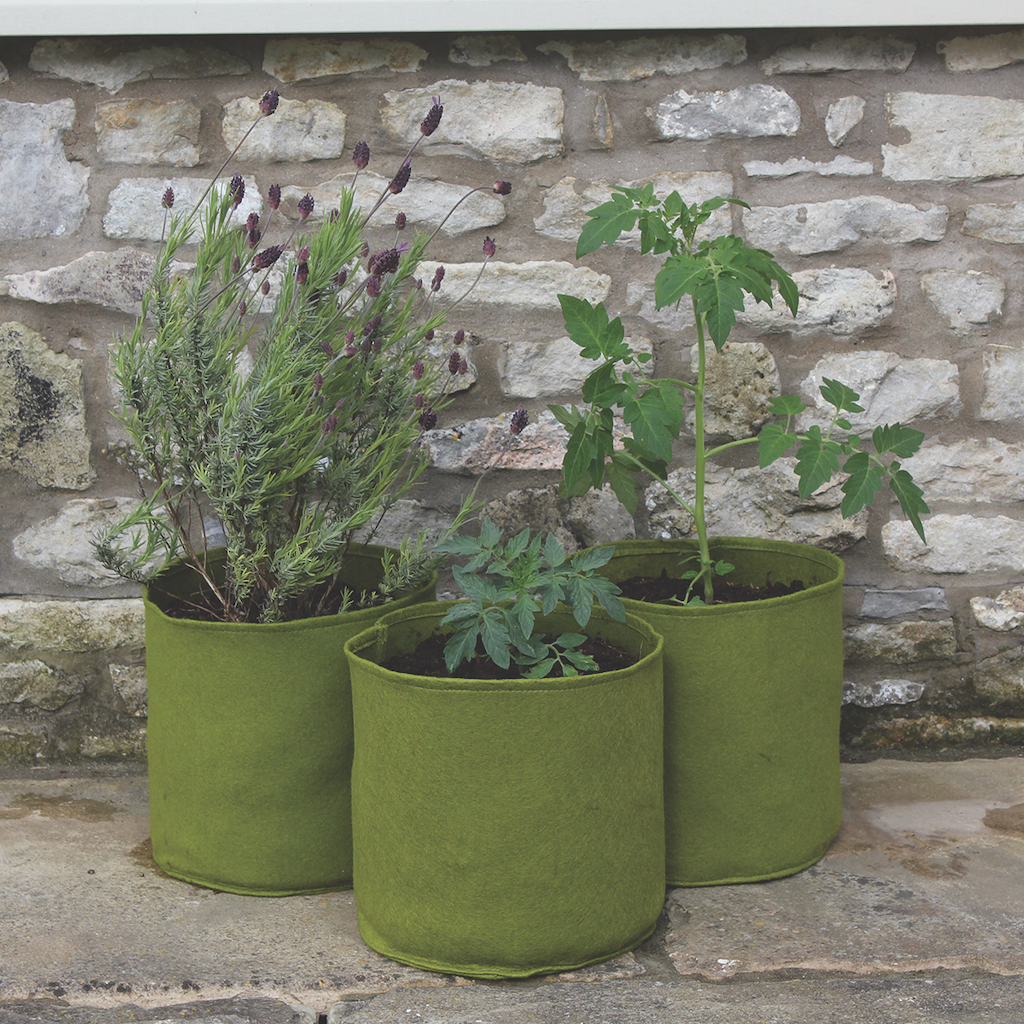
We have also discovered some fabulous felt pots which Caroline uses for her tomatoes each year and absolutely loves. No plastic in sight, totally re-useable and very easy to store when you are not using them – what’s not to like! We have some in our online shop if you want to know more.
Gardening shorts
- Start sowing bedding annual seeds now, indoors, of things like Begonia or Pelargonium. Use modules rather than trays for these, because they have a tendency to object violently (usually by dying) if their roots are disturbed during the potting-on process.
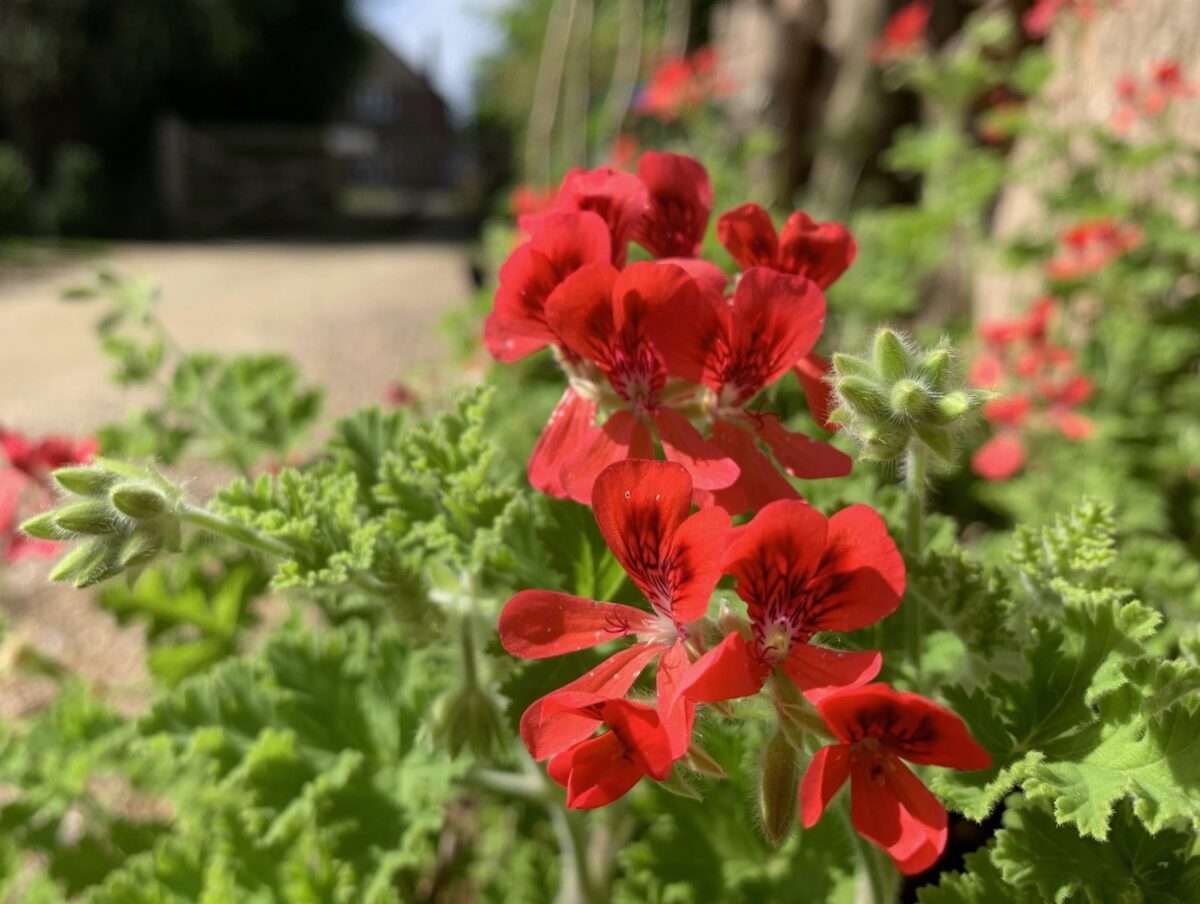
- If you’re lucky enough to have some autumn-fruiting raspberries, cut the canes right down to the ground now.
- Prune hardy evergreen hedges like privet, yew or cherry laurel before growth starts in mid-spring and mulch them with some well-rotted manure. Try and do this before wild birds start nesting in earnest.

- Plant onion and shallot sets in modules under cover, ready to plant out later, especially if you have cold, wet soil. Making sure that they already have some roots before they go outside also prevents the birds from yanking them out of the soil, thinking the papery tops would make great nesting material!
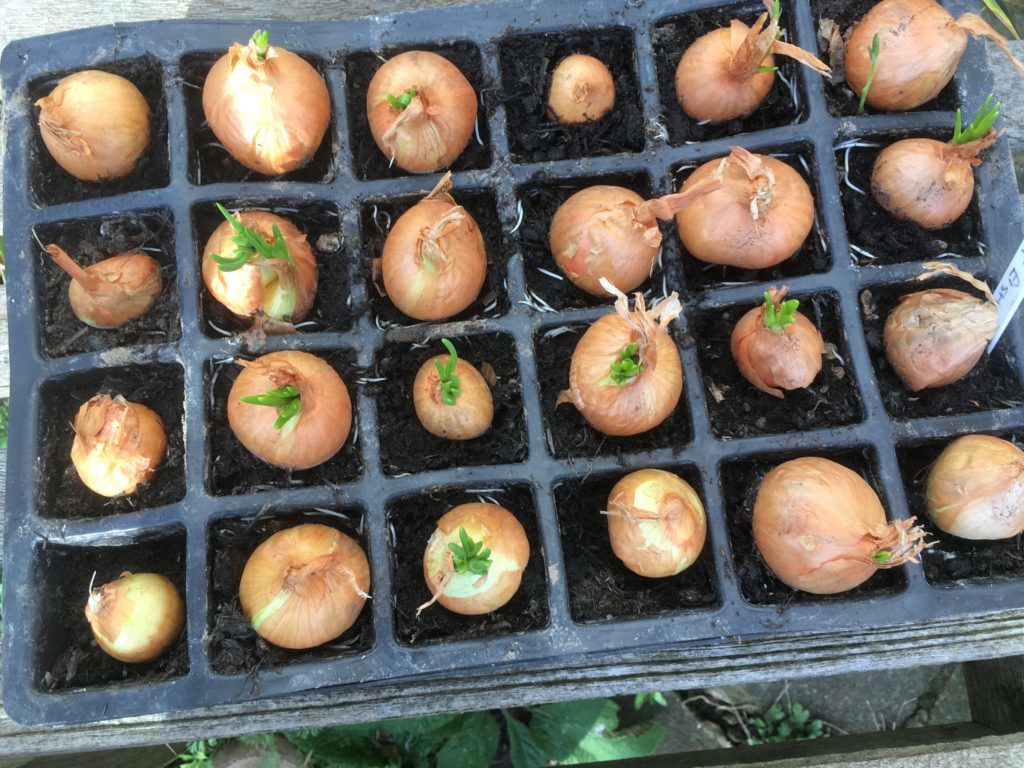
Here is the link to our great offer on our veg book.
We 3Growbags had a wonderful day at the Garden Media Press Event this week in London. If you fancy seeing what we got up to, check up this link.
More NB If you’re not already a subscriber and you’d like a bit more gardening chitchat from the3growbags, please type your email address here and we’ll send you a new post every Saturday morning.
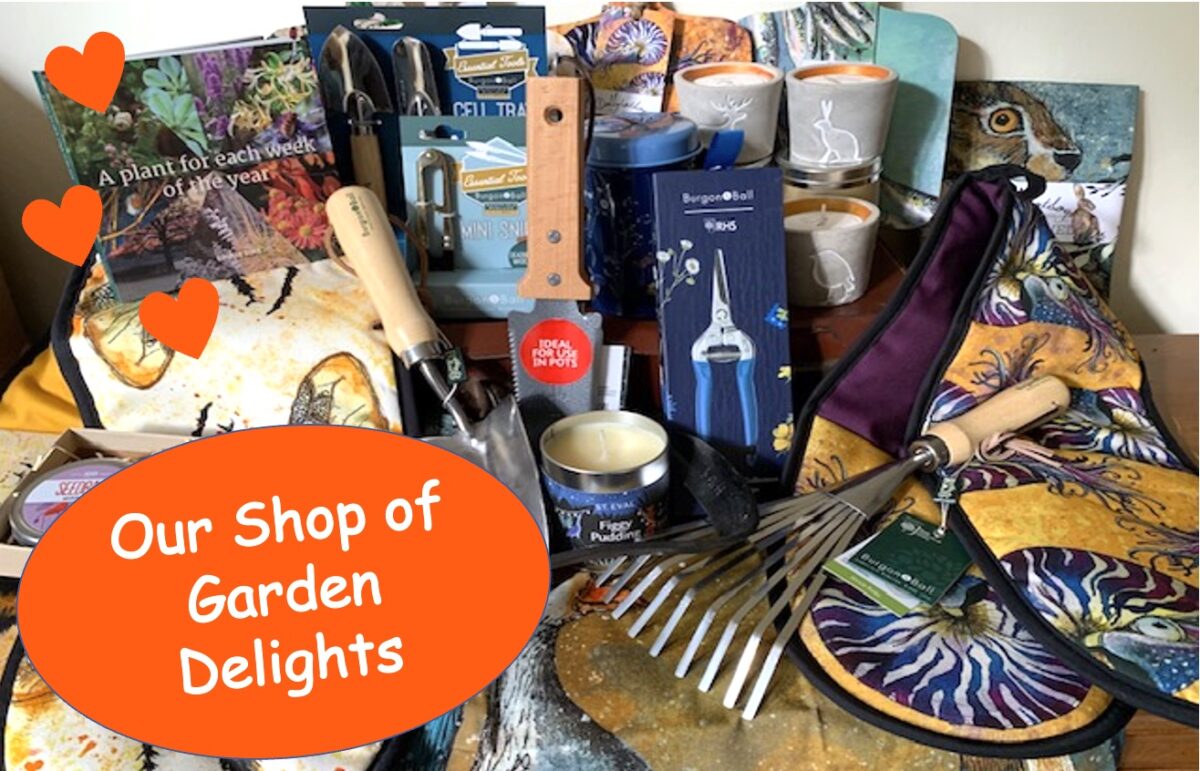
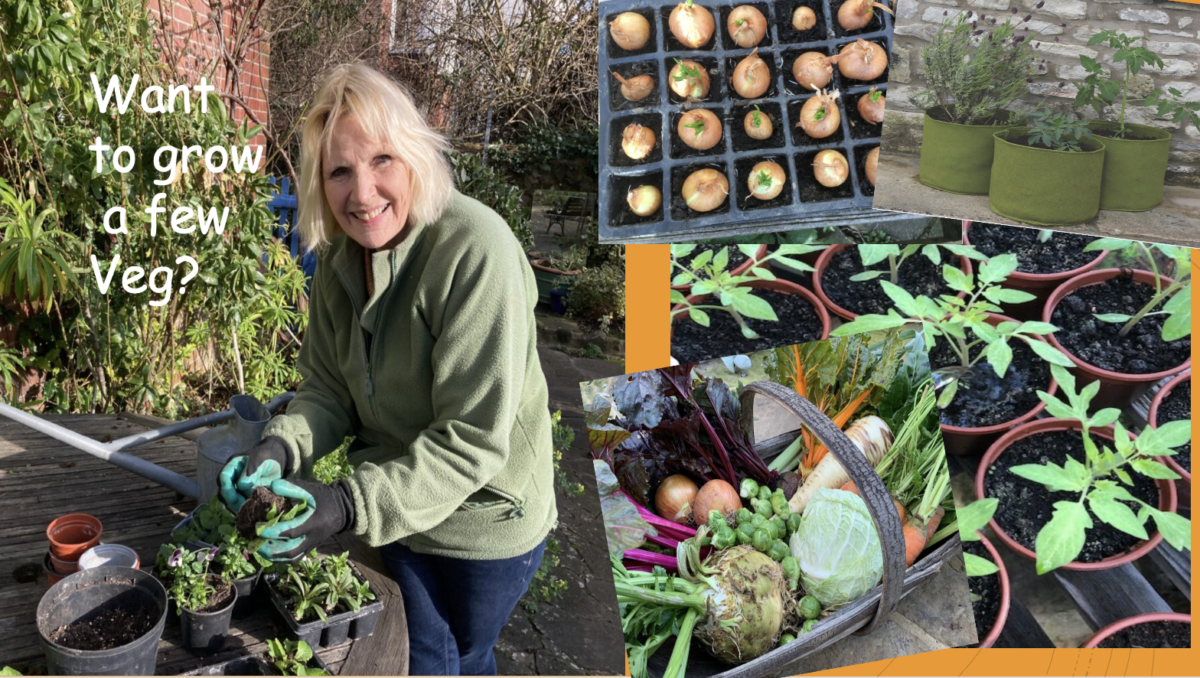
4 replies on “Let’s beat the shortages! Grow-how tips for February”
I successfully grew some lovely sweetcorn in Vigoroot pots last year – in a corner of the garden where the badgers couldn’t find them. A great discovery!
Hi Anna, great idea! Yes, they clearly have multiple uses and anything that encourages recycling of materials in the garden gets a huge thumbs-up from all of the Growbags! All the best.
I was inspired by your foray into the garden to find shrubs to force. I’d add Corylopsis pauciflora with its wonderful cowslip scent and Ribes “White Icicle” with a rather pungent aroma ….
Hi Sue, Elaine here. I reckon that the Corylopsis is an excellent idea – I shall add it to the list. Branches of flowering currant (Ribes) in the house I am not sure about – pretty, I grant you, but we have a very well-behaved cat, and I don’t want her being accused wrongly of having an accident inside………..! I think I shall keep mine safely outside to flower at the appropriate time where the scent is not so trapped. Thank you for writing in – we always love to hear ideas from our readers.